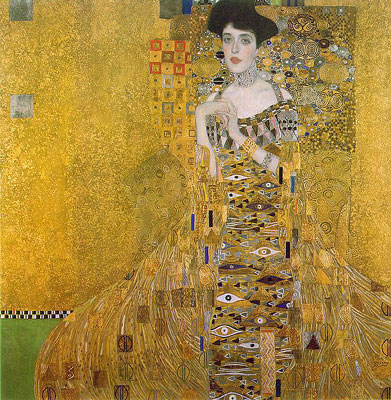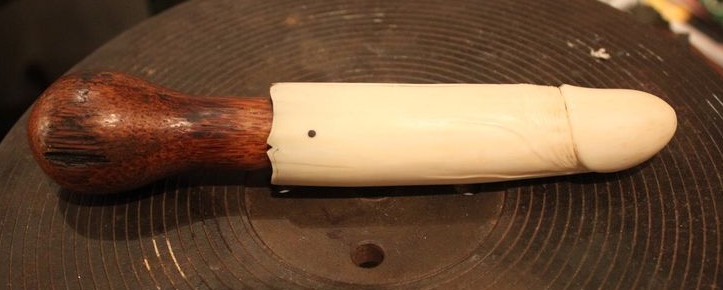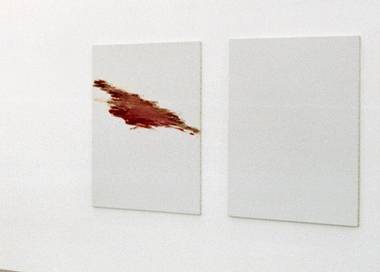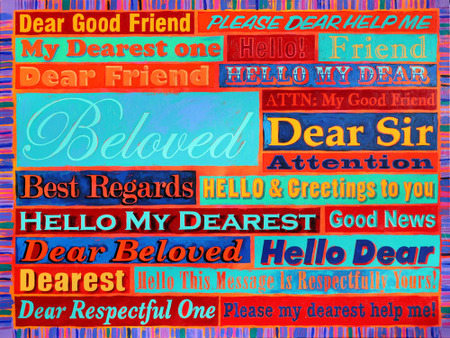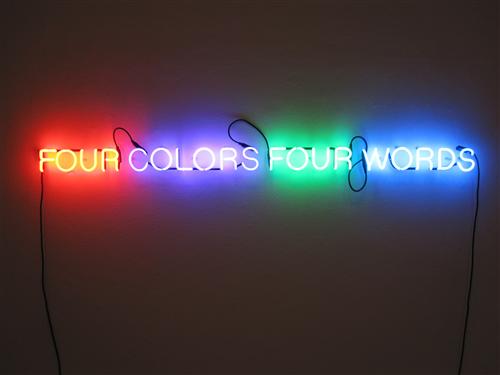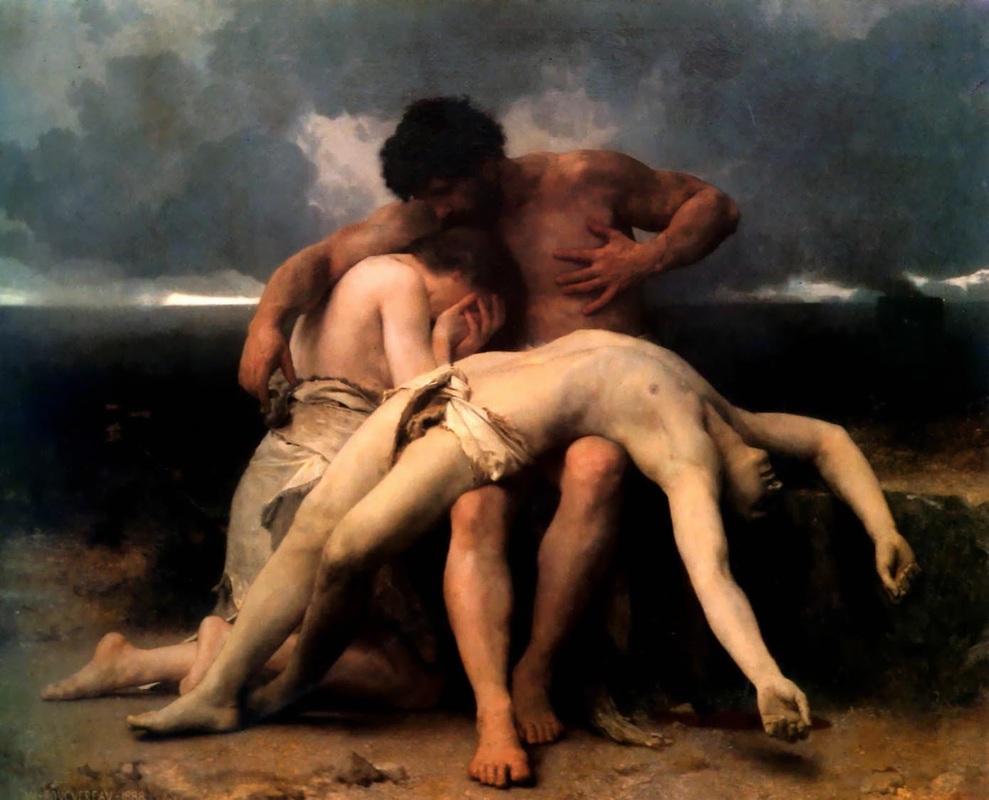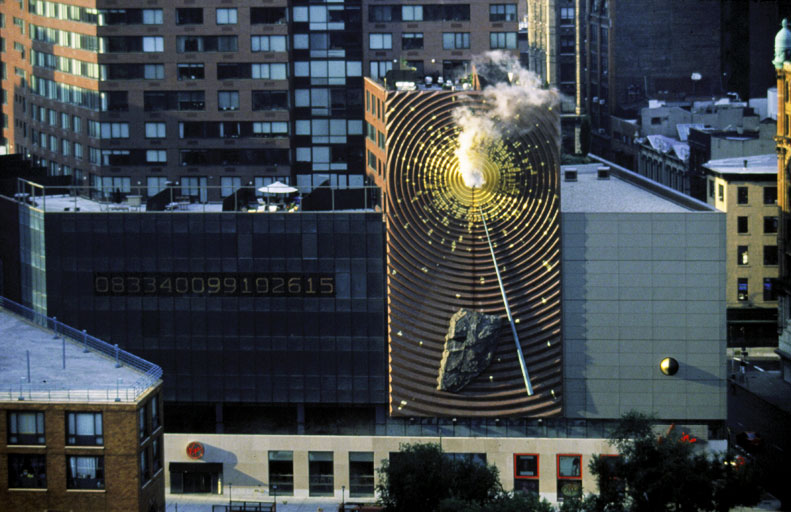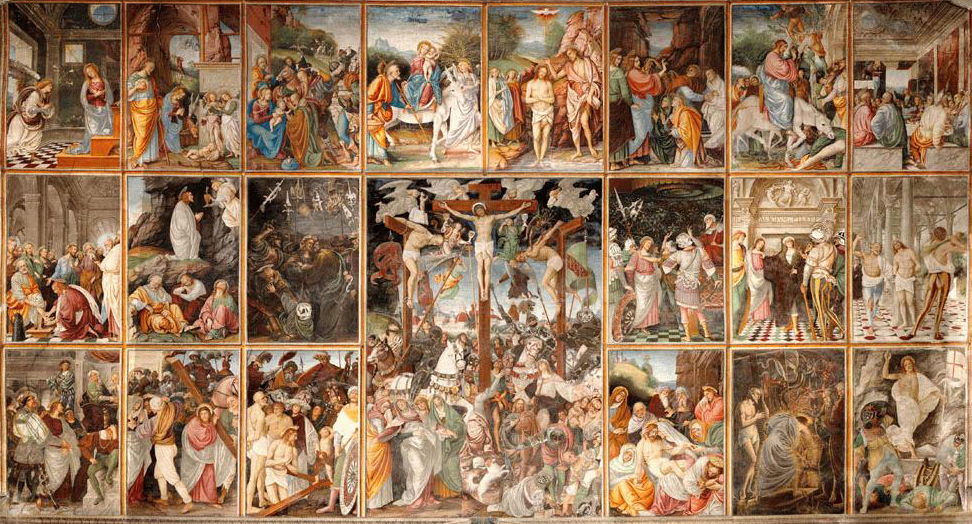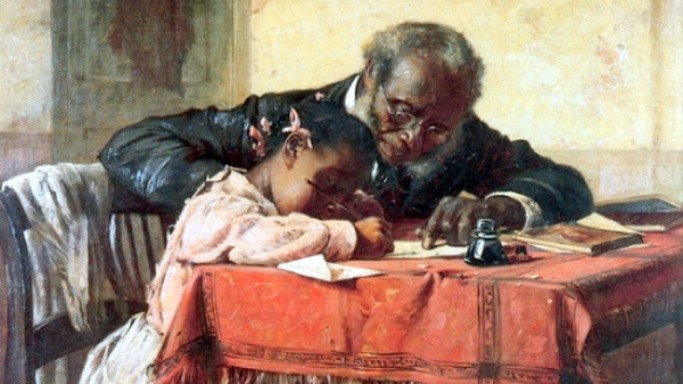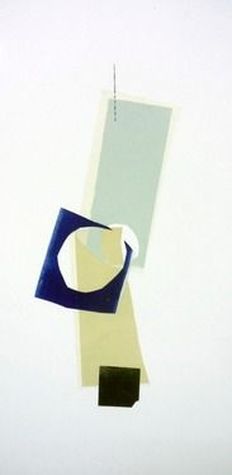|
Two Students Looking at a Postcard of a Painting by Gustav Klimt While Listening to Gavin Walker Play Jazz at the Classical Joint Coffee House, Vancouver, BC
Drums again along the inlet: two blocks south of the docks on a rainy Thursday evening, white man's drums filling the room with a white rain. At a table a young man and a young woman here on a date begin the first touches and whispers that will lead to another beginning with the flesh. But now she holds onto his sweater at his chest as she leans in to put her mouth at his ear to say something through the music. He is the more shy of the pair. Yet his arm touches her sweatered arm as he bends his head almost into her hair to reply. Her fingers stay on his shoulder; his face is dazed with pleasure and fear. Now Gavin Walker rises to the microphone with his alto sax, and begins. He is less than a meter from the two crowded in at a front table, but the young man sits partly turned from the music staring down at his coffee, while the woman watches the musicians past his face. Gavin Walker strains at his work, his right foot lifts from the floor as his saxophone throws into the steady falling white water of the drums the notes that are harsh sparks of reddish-brown light. At his back the two others of his group half-interestedly follow him: the electric bass placing its bars of black sound underneath the others' music, and the electric guitar releasing form time to time into the room its clusters of floating yellow globes. At the table in front, the young man turns and from the chairback pulls out of an inside pocket of his coat a postcard of a painting by Gustav Klimt. He lays the card flat on the table, positioned so the young woman can see and bends her head to look at it too, their hair almost touching. It is a glittering pattern of gold and muted colors meant to depict a woman. They do not speak. After a few seconds the young man takes the card from the table and returns it to his coat again. But now he sits with his back to her, facing the musicians. The young woman rests her chin gently on his shoulder, her arm around his body, holding him. Gavin Walker finishes a solo run, but no one claps; the drums and electric strings drive the music forward through the night. Before the set is over, the young man and young woman get up to go. Gavin Walker is working again; they have to squeeze between the microphone and the table in order to leave. They move past him in their coats into the wet darkness outside the door carrying the postcard with them. Gavin Walker does not watch them go. It is almost midnight. He will do a slow ballad next and then an old Miles Davis piece. After the break he will cut the second set off short. There are always smaller crowds on a rainy night and this evening hardly anyone will be left in the room to hear. Tom Wayman "Two Students Looking at a Postcard...", Did I Miss Anything? Selected Poems 1973-1993 by Tom Wayman, Harbour Publishing, 1993, www.harbourpublishing.com Tom Wayman is an award winning author of more than 20 books, mostly poetry.
0 Comments
Lifted, Carried
At nine, your son will find the dildo nestled in its shiny oblong box underneath the folded winter pullovers, he will lift it from its molded plastic bed peer through its rose silicon skin to the two rings of marble-sized metal balls which rotate at a button’s press, he’ll touch the tiny rabbit ears at the base. At 13, red-faced, brazen, knowing its purpose now he’ll confront you you’ll tell him there is no shame. The body’s hungers for pleasure demand feeding one way or another. Still, he will sing out dildo whenever he thinks of it owning your secrets, just as you, at nine, discovered her love letters in her lingerie drawer. Her shame ran wider than the dirty waves of Lake Erie licking the shore in those blue and yellow summers the waves lifted and carried you swimming. In winter, you climbed up and over their cold jagged shapes. Carla Drysdale Carla Drysdale is a Canadian poet who resides in France. Her first book of poems, Little Venus, was published by Tightrope and her chapbook, Inheritance, is forthcoming from Finishing Line Press. Her poems have been published in PRISM International, Scapegoat Review, Literary Mama, The Same, LIT, the Literary Review of Canada, Canadian Literature, The Fiddlehead, Global City Review, and others. She was awarded PRISM's Earle Birney poetry prize in 2014. She was recently named a Bettering American Poetry nominee by Zoetic Press for her poem, "What He Said." Her poem, “New Year’s Eve” was set to music by composer David del Tredici and she has collaborated with artist Ken Dubin. Leaving a Kiss A woman who says she was so overcome with passion for a valuable painting on display in France has been charged with criminal damage after kissing it. BBC NEWS what will become you, of me? something so brief as a kiss has united us. Conspirators. there are rules about me - lines and brushstrokes color, canvas, vision. but the only lines I think about are the canvas edges, the space between me and those who come to see, worship or dismiss, world of voyeurs. you brought me passion, something I have never known. out of all those in the museum, you alone stepped forward. you will suffer consequences for crossing another line, for making me almost human. Christopher Woods The Countdown
I was waiting for a bus at Union Square East. It was cold and it was winter and it was night. I stood on the sidewalk by a black fire hydrant that was stuck in cement, cement that was engraved with dozens of names. The bus stop where I was waiting was in front of a building with four tall fake-looking Greek columns, right next door to a Babies ‘R Us. From where I was standing I could see only the last four numbers of the countdown clock. I didn’t know it was a clock until last summer when I was walking with Avery across Union Square and a guy stopped us and told us the whole history. He explained that the orange LED numbers that were constantly changing showed the time. If you read the clock from left to middle, it shows the time in military time: two digits for the hour, two digits for the minutes, and two digits for the seconds. If you read the clock backwards from right to middle, it counts down the time left until midnight. So, the two digits on the far right show the hours left until midnight, the two digits to the right of them show the minutes left, then the two digits to the right of the minutes show the seconds. The guy also explained those giant rings with the hole in the centre to the right of the clock, and pointed out an orb on the far right side of the wall that apparently rotates to show the current phase of the moon. I had never noticed that part, and the numbers on the clock part had just been mysterious to me. I had assumed that it was counting something, that it was representing something, like maybe the national debt. And I guess I was right. It was counting something. Time. After the guy explained the whole thing to us like a docent in a museum, he said that giving that speech about the art was part of how he earned his living, and that he appreciated donations. So we gave him money and went on our way. I think about all he said sometimes when I walk across Union Square. I wonder how many of the people around me know about the clock, and how many don’t. From the bus stop, I could only see the last four numbers of the clock, the countdown to midnight. I looked at the four orange numbers. 1602. That means there are 2 hours and 16 minutes left in the day. But the four numbers together look like they could stand for a year. 1602. I wondered what was going on that year, 1602. Plymouth Rock? Then I realized I had never been in Union Square when the clock got to midnight and reset. A fleet of yellow taxis was waiting at the red light. It was cold and I wondered when the bus would get there. MTA has a website called MTA Bus Time. I looked at it on my phone. There’s a list of bus stops named for their location and there’s a little icon of the bus next to the stop it’s stopping at or approaching. The little bus icon was getting closer to my stop. It was making its progress, climbing down its ladder, down the list of stops. It was another kind of countdown, this one in stops, this one in distance. What if I decided not to get on the bus when it arrived? What if I decided to wait and watch the clock count down to midnight? The clock is like an hourglass, the sum of time on one side and the balance of time on the other. I imagined the clock getting to perfect equilibrium, all zeros, at midnight, and rainbow waves of light like an aurora borealis beaming and radiating above the Burlington Coat Factory. Could I miss such a gorgeous phenomenon? Avery doesn’t believe in countdowns. Because in a countdown, you’re focusing on the numbers, on counting, and not on being in the moment. But looking at the countdown clock that night with the bus getting closer to me, stop by stop, I somehow felt consciously where I was at that moment in space and time. I was waiting for a bus in Union Square, and there were two hours and sixteen minutes left until midnight. Jamie Christensen Jamie Christensen graduated with a B.A. in comparative literature from Brigham Young University. She currently lives, works, and writes in New York City. Website: https://jcbookreviews.wordpress.com/ Twitter: @jamieannindigo Glass
The day you shredded your hands falling onto jagged rocks and a broken bottle, all I saw was the silence storming the sky behind you, and the silverblind light shattering the water. How it caught itself on the sea-glass pale shards, a handful of raw jewels in your crucified palms. Lorette C. Luzajic Lorette C. Luzajic is a poet, writer, and visual artist who works with collage, photography, text and mixed media. She is the editor of Ekphrastic, and the author of more than ten books, including the poetry volumes Solace and The Astronaut's Wife. Her poetry has been published in hundreds of literary and online journals, and she has been nominated for Best of the Net. Luzajic also writes a Wine and Art column for Good Food Revolution. |
The Ekphrastic Review
COOKIES/PRIVACY
This site uses cookies to deliver your best navigation experience this time and next. Continuing here means you consent to cookies. Thank you. Join us on Facebook:
July 2024
|
